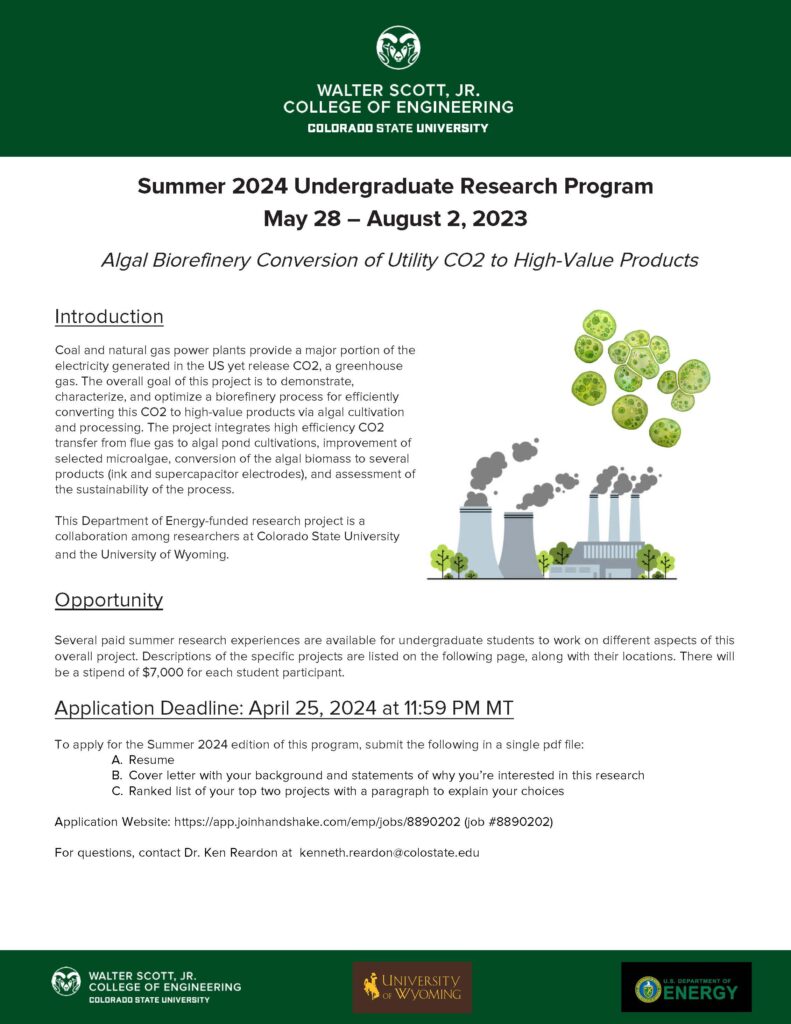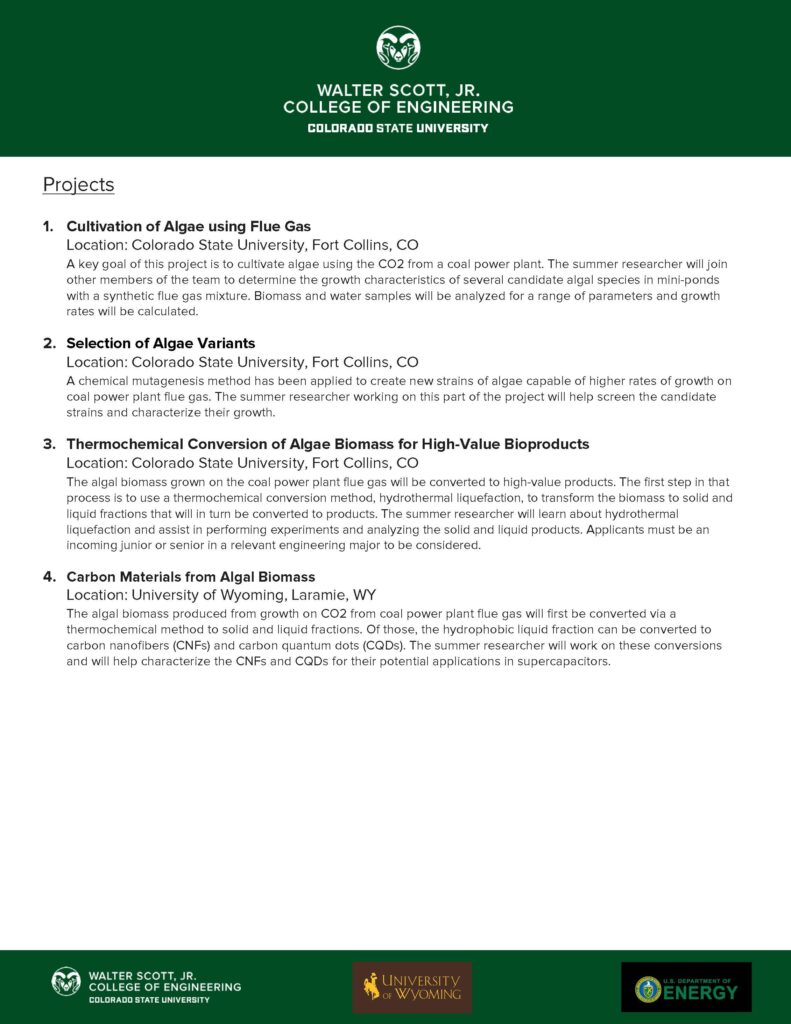WSCOE Undergrad Summer Research Opportunity: Algal Biorefinery Conversion of Utility CO2 to High-Value Products
Coal and natural gas power plants provide a major portion of the electricity generated in the US yet release CO2, a greenhouse gas. The overall goal of this project is to demonstrate, characterize, and optimize a biorefinery process for efficiently converting this CO2 to high-value products via algal cultivation and processing. The project integrates high efficiency CO2 transfer from flue gas to algal pond cultivations, improvement of selected microalgae, conversion of the algal biomass to several products (ink and supercapacitor electrodes), and assessment of the sustainability of the process. This Department of Energy-funded research project is a collaboration among researchers at Colorado State University and the University of Wyoming.
Opportunity
Several paid summer research experiences are available for undergraduate students to work on different aspects of this overall project. Descriptions of the specific projects are listed on the following page, along with their locations. There will be a stipend of $7,000 for each student participant.
Application Deadline: April 25, 2024 at 11:59 PM MT
To apply for the Summer 2024 edition of this program, submit the following in a single pdf file:
- Resume
- Cover letter with your background and statements of why you’re interested in this research
- Ranked list of your top two projects with a paragraph to explain your choices
For questions, contact Dr. Ken Reardon.
Projects
Cultivation of Algae using Flue Gas
Location: Colorado State University, Fort Collins, CO. A key goal of this project is to cultivate algae using the CO2 from a coal power plant. The summer researcher will join other members of the team to determine the growth characteristics of several candidate algal species in mini-ponds with a synthetic flue gas mixture. Biomass and water samples will be analyzed for a range of parameters and growth rates will be calculated.
Selection of Algae Variants
Location: Colorado State University, Fort Collins, CO. A chemical mutagenesis method has been applied to create new strains of algae capable of higher rates of growth on coal power plant flue gas. The summer researcher working on this part of the project will help screen the candidate strains and characterize their growth.
Thermochemical Conversion of Algae Biomass for High-Value Bioproducts
Location: Colorado State University, Fort Collins, CO. The algal biomass grown on the coal power plant flue gas will be converted to high-value products. The first step in that process is to use a thermochemical conversion method, hydrothermal liquefaction, to transform the biomass to solid and liquid fractions that will in turn be converted to products. The summer researcher will learn about hydrothermal liquefaction and assist in performing experiments and analyzing the solid and liquid products. Applicants must be an incoming junior or senior in a relevant engineering major to be considered.
Carbon Materials from Algal Biomass
Location: University of Wyoming, Laramie, WY. The algal biomass produced from growth on CO2 from coal power plant flue gas will first be converted via a thermochemical method to solid and liquid fractions. Of those, the hydrophobic liquid fraction can be converted to carbon nanofibers (CNFs) and carbon quantum dots (CQDs). The summer researcher will work on these conversion sand will help characterize the CNFs and CQDs for their potential applications in supercapacitors.




Leave a Reply